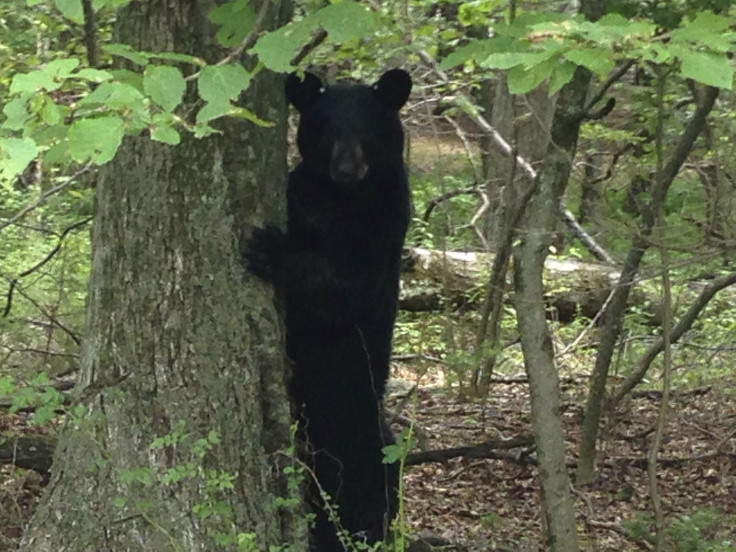New Jersey Annual Bear Hunt Extended By 4 Days After Hunters Fail To Meet Target

New Jersey authorities on Sunday announced an extension of the state’s annual black bear hunt, after hunters failed to meet the target of 20 percent reduction in the state’s black bear population. Last week, hunters killed 472 bears over a six-day period as part of the yearly hunt, decried as inhumane by animal rights groups.
Hunting will now continue this week, Wednesday through Saturday.
“The harvest numbers recorded this week have fallen short of our six-day wildlife management goal, which was arrived at through extensive science and research that has been ongoing since 2010,” the New Jersey Department of Environmental Protection Commissioner Bob Martin reportedly said, in a statement. “With the four-day extension, we will reach a harvest number that will keep the black bear population healthy and sustainable, while reducing the potential for conflicts with people.”
In 2010, New Jersey hunters killed nearly 600 black bears. However, last year, this number fell to 272. Before this year’s hunt began, the black bear population in the state was estimated at approximately 3,500, compared to fewer than 100 in the 1970s.
“While black bears have been reported in all 21 counties, the densest population -- estimated at about 3,500 -- is found in northern New Jersey,” the state department of environmental protection said, in a statement released earlier this month. “Research over the past five years that included surveys, captures of previously tagged bears, den studies, reproduction analyses and density analyses confirm that northwestern New Jersey continues to have a very dense black bear population and one of the most productive in the country, with larger litter sizes and high cub survival rates.”
State authorities argue that the hunt is necessary to remove threats to human safety. However, they acknowledge that bear attacks in the state are “extremely rare” and that between Jan. 1 and Nov. 20, bear sighting and nuisance reports have fallen 24 percent compared with the same period last year.
“It’s a barbaric activity,” Jerome Mandel, a New Jersey resident who opposes the hunt, told the Wall Street Journal. “They’re beautiful, magnificent animals.”
© Copyright IBTimes 2024. All rights reserved.












